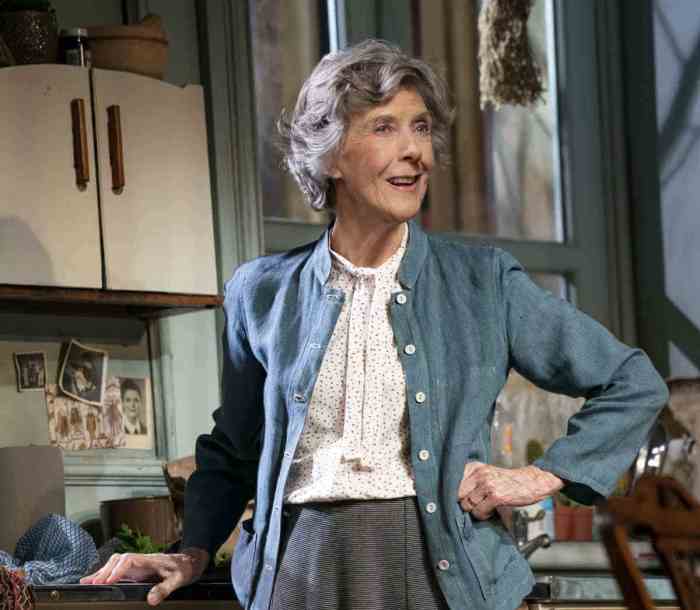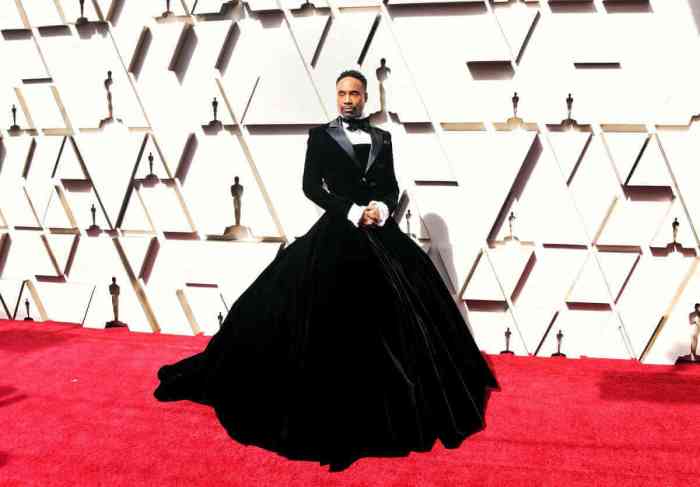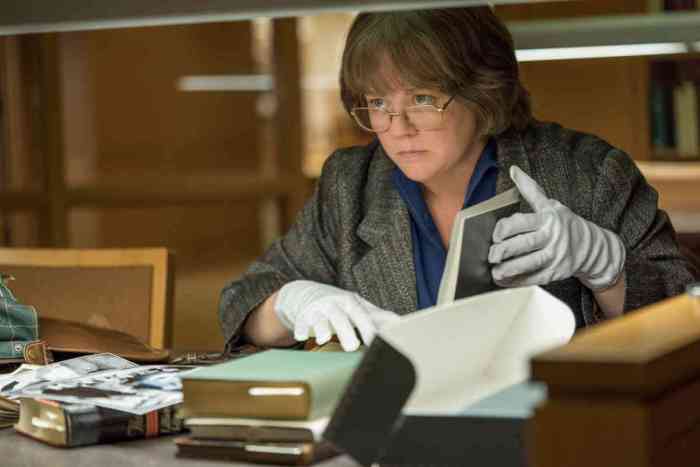Janet McTeer and Liev Schreiber in Josie Rourke’s revival of Christopher Hampton’s “Les Liaisons Dangereuses.” | JOAN MARCUS
Sad to say, the erotic entanglements in the turgid revival of Christopher Hampton’s “Les Liaisons Dangereuses” are far more ennuyeuses — tedious — than dangerous. That’s a shame because this play about two self-involved aristocrats who feed their own passions by destroying other people through sex has so much potential. Indeed, anyone who remembers the electrifying 1987 production will find the Donmar Warehouse production now at the Booth drained of the deliciously evil, cynical machinations that make this play so dark yet also delightful.
Director Josie Rourke, with brilliant assistance from Tom Scutt (costumes and set) and Mark Henderson (lighting), created a stunning world of love among the ruins. (A drawing room in decay as the backdrop is a little too obviously conceptual, but it is nonetheless gorgeous.) Yet all the visual riches are a poor excuse for the lack of depth in the direction and performances. This is a play about two people — La Marquise de Merteuil and her lover and partner in crime Le Vicomte de Valmont — who, out of a desire to spice up their on-again/ off-again affair, revel in destroying others. In the years before the French Revolution, their decadent game takes deadly aim at a hypocritical social structure that denies the essence of humanity that can be expressed through sex. Their success demonstrates that sanctioned concepts such as purity and fidelity are merely imposed upon our animal natures, and with the proper provocation and permission they not only crumble but are shown up as the true debasing forces in life.
What gives this play its frisson of evil is that while Merteuil and Valmont spin through these games with sociopathic glee, their victims are destroyed not because they are physically violated but rather because they cannot reconcile their awakened passions to social roles they have long nurtured. Valmont’s victims, the virginal Émilie and the religious Madame de Tourvel, essentially go mad in the process.
It’s potentially so much fun.
Two revivals lack the fire of the originals
That’s why it’s surprising that Rourke’s production is so dull. How she managed to rob this play of its sexual tension is the only question that resonates after the final curtain. Part of it is casting. Janet McTeer plays Merteuil, and her highly stylized performance is mannered and shallow. Moments that would call for real emotion are accomplished through vocal tricks (dropping her voice an octave) that seem false, rather than organic or believable characterization. Liev Schreiber as Valmont seems to be in a different play entirely. He tends toward the more naturalistic, which only amplifies the flaws in McTeer’s interpretation. Valmont doesn’t require subtext; he needs to be simply a blatant and craven egoist. There is, as well, zero sexual chemistry between the two stars, and the tension that would create is what should drive the piece.
The rest of the cast seems to have been left to their own devices, and while the supporting characters exist primarily to drive the plot rather than as real people, even by that standard they are unremarkable and one-dimensional. It doesn’t help that both Émilie (Katrina Cunningham) and Madame de Tourvel (Birgitte Hjort Sørensen) come across as unbelievable, even ridiculous, each in her own way, once they’ve been had by Valmont.
This is a play about sex, and that’s where this production fails. The photo on the cover of the Playbill has more passion than anything seen on stage. Throughout, the sex is mechanical and passionless where it should be shocking and, yes, dangerous. Rourke has robbed the play of its essential conflict — the unbridled human passion that thrums beneath a contrived social order — and rendered it, in La Marquise de Merteuil’s most stinging denunciation, commonplace.
Rachel Weisz and Corey Stoll David Leveaux’s revival of David Hare’s “Plenty.” | JOAN MARCUS
In the same way that Rourke missed the point with “Les Liaisons,” taking the bitterness and bite out of that play, so too has David Leveaux drained the juice from another revival — of David Hare’s magnificent “Plenty.” The story of Susan Traherne, a woman who fought for the French Resistance in World War II and found life afterwards desperately mundane and enraging, is one of my favorite plays. (The parallels to the Marquise de Meurteil and even Hedda Gabler are inescapable.) Lyrical language and visceral conflict collide in a drama that is as emotionally harrowing as it is artistically crafted. The play’s structure takes us back and forth over time and place and should carry the audience on an emotional roller coaster ending at the very moment that Susan’s life is transformed forever and, though she doesn’t yet know it, her tragedy cast.
In the original Broadway production, that moment was gasp-inducing and cinematic, leaving one shaken, as did all of Kate Nelligan’s performance. It was the kind of moment that nearly three decades later remains sharp in one’s memory. Sadly, the moment’s power is missing from the current production, which, while intermittently compelling with Rachel Weisz in the role, is more bland than galvanizing.
The problem rests with Leveaux’s direction. It’s as if he doesn’t understand the underlying disillusionment and the resulting rage that motivate Susan. She is not conventionally crazy, but is beyond the reach of consolation. Her tragedy is that she has lost her identity and the world she fought for has disappointed her. Susan will never be well, though she may at times be under control, but Leveaux just lets her be garden-variety nuts and unravel over the course of the evening. The result is more pathetic than tragic, which doesn’t fully serve the play.
Weisz looks beautiful in Jess Goldstein’s consistently stunning costumes on Mike Britton’s ingenious revolving set, and her outbursts can be harrowing, but she’s never really threatening or frightening, making it too easy to dismiss Susan. The other members of the company include Corey Stoll as Susan’s husband, in an often tender if confusing performance. We never really understand why he stays with her for so many years. The reliable Byron Jennings is excellent as Sir Leonard Darwin, the consummate foil to Susan, having chosen a life in the diplomatic corps, which represents the very antithesis of Susan’s recklessness.
What should be Susan’s lifelong existential crisis has been reduced to neurotic solipsism. Her story should be hot and theatrical. Sadly, this “Plenty” never turns up the heat. It barely even turns it on.
LES LIAISONS DANGEREUSES | Booth Theatre, 22 West 45th St. | Through Jan. 22: Tue., Thu. at 7 p.m.; Wed., Fri.-Sat. at 8 p.m.; Wed., Sat. at 2 p.m.: Sun. at 3 p.m. | $42-$149 at telecharge.com or 212-239-6200 | Two hrs., 50 mins., with intermission
PLENTY | The Public Theater, 425 Lafayette St., btwn. E. Fourth St. & Astor Pl. | Through Dec. 1: Tue.-Sat. at 7:30 p.m.; Wed., Sat.-Sun. at 1:30 p.m. | $70-$100 at publictheater.org or 212-967-7555 | Two hrs., 30 mins., with intermission




































